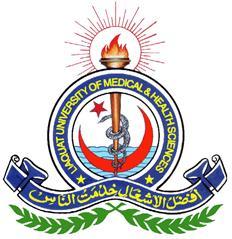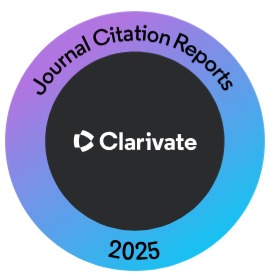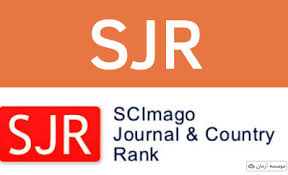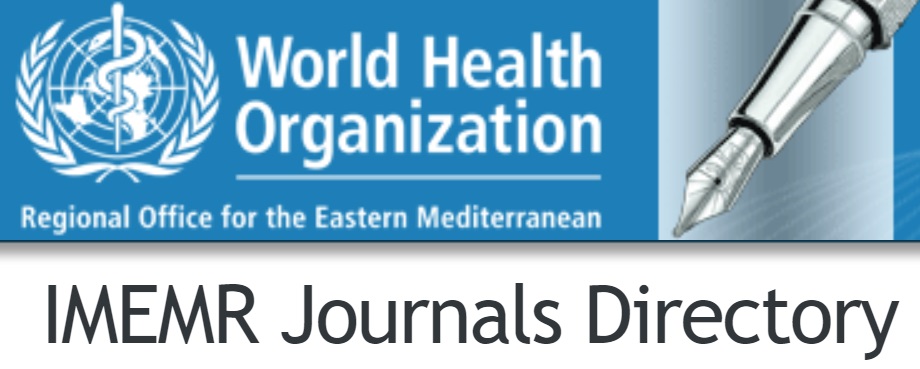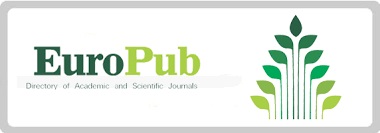Early-Age Breast Cancer during Active Conflict in Syria: A Cross-Sectional Study
Keywords:
breast cancer, early age, risk factors, stress, protracted conflictAbstract
OBJECTIVE: To examine the risk factors associated with breast cancer within a war-affected region enduring over a decade of conflict in Northwest Syria.
METHODOLOGY: A cross-sectional study was conducted from January to December 2022. Inclusion criteria required patients to have a palpable breast mass confirmed by biopsy. Patients residing in the region for less than 5 years were excluded from the study. The study included 164 female patients, averaging 47.14±11.31 years. Data were collected through surveys during visits to the regional cancer center. Ten risk factors were analyzed: Age, family history, Age at menarche, age at menopause, body mass index, breastfeeding, age at first birth, smoking, hormonal contraceptive use, and psychological stress. Statistical analysis was performed using IBM SPSS Statistics 25.
RESULTS: Among the breast cancer patients, 32.9% were ?40 years old (mean = 34.7, SD = 4.35), 32.9% were 41-50 years old (mean = 46.3, SD = 2.75), and 34.1% were >50 years old (mean = 59.89, SD = 6.15). Significant correlations (p < 0.05) were found between all fixed and variable risk factors except smoking, age at menarche, and hormonal contraceptive use.
CONCLUSION: Our study revealed a nearly ten-year decrease in the average age of breast cancer onset among our patients compared to global standards. Prolonged conflict is likely a key factor driving earlier and increased breast cancer cases in Syria's younger women. These findings highlight the need for targeted public health interventions and further research into the impact of chronic conflict on cancer epidemiology.
References
Atassi B, Tse G, Mkhallalati H, Debel J, Jemmo A, Khalil M et al. Cancer Diagnoses during Active Conflict: Experience from a Cancer Program in Northwest Syria. Avicenna J Med. 2022; 12(4): 157-61. doi: 10.1055/s-0042-1755331.
Xu H, Xu B. Breast cancer: Epidemiology, risk factors and screening. Chin J Cancer Res. 2023; 35(6): 565-83. doi: 10.21147/j.issn.1000-9604.2023.06.02.
Liu X, Yue J, Pervaiz R, Zhang H, Wang L. Association between fertility treatments and breast cancer risk in women with a family history or BRCA mutations: a systematic review and meta-analysis. Front Endocrinol (Lausanne). 2022; 13: 986477. doi: 10.3389/fendo.2022.986477.
Davies L, Milner DA, Shulman LN, Kyokunda L, Bedada A, Vuylsteke P et al. Analysis of Cancer Research Projects in Sub-Saharan Africa: A Quantitative Perspective on Unmet Needs and Opportunities. JCO Glob Oncol. 2023; 9: e2200203. doi: 101200/GO.22.00203.
Siegel RL, Miller KD, Jemal A. Cancer statistics, 2020. CA Cancer J Clin. 2020; 70: 7-30. doi: 10.3322/caac.21590.
Russo J, Moral R, Balogh GA, Mailo D, Russo IH. The protective role of pregnancy in breast cancer. Breast Cancer Res. 2005; 7(3): 131-142. doi: 10.1186/bcr1029.
Collaborative Group on Hormonal Factors in Breast Cancer. Breast cancer and breastfeeding: collaborative reanalysis of individual data from 47 epidemiological studies in 30 countries, including 50302 women with breast cancer and 96973 women without the disease. Lancet. 2002; 360(9328): 187-95. doi: 10.1016/S0140-6736(02)09454-0.
Alexeeff SE, Odo NU, McBride R, McGuire V, Achacoso N, Rothstein JH et al. Reproductive Factors and Mammographic Density: Associations Among 24,840 Women and Comparison of Studies Using Digitized Film-Screen Mammography and Full-Field Digital Mammography. Am J Epidemiol. 2019; 188(6): 1144-54. doi: 10.1093/aje/kwz033.
Dall GV, Britt KL. Estrogen Effects on the Mammary Gland in Early and Late Life and Breast Cancer Risk. Front Oncol. 2017; 7: 110. doi: 10.3389/fonc.2017.00110.
Arzanova E, Mayrovitz HN. The Epidemiology of Breast Cancer. In: Breast Cancer. Exon Publications; 2022. p. 1-20.
Chlebowski RT, Aragaki AK. The Women's Health Initiative randomized trials of menopausal hormone therapy and breast cancer: findings in context. Menopause. 2023; 30(4): 454-61. doi: 10.1097/GME.0000000000002154.
Vinogradova Y, Coupland C, Hippisley-Cox J. Use of hormone replacement therapy and risk of breast cancer: nested case-control studies using the QResearch and CPRD databases. BMJ. 2020; 371: m3873. doi: 10.1136/bmj.m3873.
Kuchenbaecker KB, Hopper JL, Barnes DR, Phillips KA, Mooij TM, Roos-Blom MJ et al. Risks of Breast, Ovarian, and Contralateral Breast Cancer for BRCA1 and BRCA2 Mutation Carriers. JAMA. 2017; 317(23): 2402-2416. doi: 10.1001/jama.2017.7112.
Anisman H, Kusnecov AW. Cancer how lifestyles may impact disease development, progression and treatment. Academic Press; 2022.
Werts SJ, Robles-Morales R, Bea JW, Thomson CA. Characterization and efficacy of lifestyle behavior change interventions among adult rural cancer survivors: a systematic review. J Cancer Surviv. 2023 Sept 28. doi: 10.1007/s11764-023-01464-4. Online ahead of print.
Schwartz SM. Epidemiology of Cancer. Clin Chem. 2024; 70(1): 140-9. doi: 10.1093/clinchem/hvad202.
Zeinomar N, Qin B, Amin S, Lin Y, Xu B, Chanumolu D et al. Association of Cigarette Smoking and Alcohol Consumption With Subsequent Mortality Among Black Breast Cancer Survivors in New Jersey. JAMA Netw O pen. 2023; 6(1): e2252371. doi: 10.1001/jamanetworkopen.2022.52371.
Aburto TC, Romieu I, Stern MC, Barquera S, Corvalán C, Hallal PC et al. Latin American and the Caribbean Code Against Cancer 1st edition: Weight, physical activity, diet, breastfeeding, and cancer. Cancer Epidemiol. 2023; 86(Suppl 1): 102436. doi: 10.1016/j.canep.2023.102436.
Malcomson FC, Parra-Soto S, Ho FK, Lu L, Celis-Morales C, Sharp L et al. Adherence to the 2018 World Cancer Research Fund (WCRF)/American Institute for Cancer Research (AICR) Cancer Prevention Recommendations and risk of 14 lifestyle-related cancers in the UK Biobank prospective cohort study. BMC Med. 2023; 21: 407. doi: 10.1186/s12916-023-03107-y.
Brewer HR, Jones ME, Schoemaker MJ, Ashworth A, Swerdlow AJ. Family history and risk of breast cancer: an analysis accounting for family structure. Breast Cancer Res Treat. 2017; 165(1): 193-200. doi: 10.1007/s10549-017-4325-2.
Stanford JL, Herrinton LJ, Schwartz SM, Weiss NS. Breast cancer incidence in Asian migrants to the United States and their descendants. Epidemiology. 1995; 6(2): 181-3. doi: 10.1097/00001648-199503000-00017.
Ziegler RG, Hoover RN, Pike MC, Hildesheim A, Nomura AMY, West DW et al. Migration patterns and breast cancer risk in Asian-American women. J Natl Cancer Inst. 1993; 85(22): 1819-27. doi: 10.1093/jnci/85.22.1819.
Penberthy JK, Stewart AL, Centeno CF, Penberthy DR. Psychological Aspects of Breast Cancer. Psychiatr Clin North Am. 2023; 46(3): 551-70. doi: 10.1016/j.psc.2023.04.010.
Armstrong K, Eisen A, Weber B. Assessing the Risk of Breast Cancer. N Engl J Med. 2000; 342(8): 564-71. doi: 10.1056/NEJM200002243420807.
Dehesh T, Fadaghi S, Seyedi M, Abolhadi E, Ilaghi M, Shams P et al. The relation between obesity and breast cancer risk in women by considering menstruation status and geographical variations: a systematic review and meta-analysis. BMC Womens Health. 2023; 23(1): 392. doi: 10.1186/s12905-023-02543-5.
Agurs-Collins T, Ross SA, Dunn BK. The Many Faces of Obesity and Its Influence on Breast Cancer Risk. Front Oncol. 2019; 9: 765. doi: 10.3389/fonc.2019.00765.
El Sharif N, Khatib I. Reproductive factors and breast cancer risk in Palestine: A case-control study. Cancer Epidemiol. 2021; 74: 102019. doi: 10.1016/j.canep.2021.102019.
Abdel-Razeq H, Mansour A, Jaddan D. Breast cancer care in Jordan. JCO Glob Oncol. 2020; 6: 260-8.
Husein S, Hanafi I, Balouli M, Baradi Z, Alsheikhah Y, Abo Samra D et al. Breast cancer screening during the Syrian crisis: A cross-sectional study. J Prev Med Hyg. 2021; 62(2): E520-8. doi: 10.15167/2421-4248/jpmh2021.62.2.2056.
Bowen DJ, Fernandez Poole S, White M, Lyn R, Flores DA, Haile HG et al. The role of stress in breast cancer incidence: risk factors, interventions, and directions for the future. Int J Environ Res Public Health. 2021; 18(4): 1871. doi: 10.3390/ijerph18041871.
Barnard ME, Wang X, Petrick JL, Zirpoli GR, Jones D, Johnson WE, et al. Psychosocial stressors and breast cancer gene expression in the Black Women's Health Study. Breast Cancer Res Treat. 2024; 204(2): 327-340. doi: 10.1007/s10549-023-07182-w.
Bahri N, Fathi Najafi T, Homaei Shandiz F, Tohidinik HR, Khajavi A. The relation between stressful life events and breast cancer: a systematic review and meta-analysis of cohort studies. Breast Cancer Res Treat. 2019; 176(1): 53-61. doi: 10.1007/s10549-019-05231-x.
Pereira MA, Araújo A, Simões M, Costa C. Influence of Psychological Factors in Breast and Lung Cancer Risk – A Systematic Review. Front Psychol. 2022; 12: 769394. doi: 10.3389/fpsyg.2021.769394.
Lichtenstein P, Holm NV, Verkasalo PK, Iliadou A, Kaprio J, Koskenvuo M et al. Environmental and heritable factors in the causation of cancer—analyses of cohorts of twins from Sweden, Denmark, and Finland. N Engl J Med. 2000; 343(2): 78-85. doi: 10.1056/NEJM200007133430201.
Obradovi? MMS, Hamelin B, Manevski N, Couto JP, Sethi A, Coissieux MM et al. Glucocorticoids promote breast cancer metastasis. Nature. 2019; 567(7749): 540-4. doi: 10.1038/s41586-019-1019-4.
Downloads
Published
How to Cite
Issue
Section
License
Copyright (c) 2024 Journal of Liaquat University of Medical & Health Sciences

This work is licensed under a Creative Commons Attribution-NonCommercial-ShareAlike 4.0 International License.
Submission of a manuscript to the journal implies that all authors have read and agreed to the content of the undertaking form or the Terms and Conditions.
When an article is accepted for publication, the author(s) retain the copyright and are required to grant the publisher the right of first publication and other non-exclusive publishing rights to JLUMHS.
Articles published in the Journal of Liaquat University of Medical & health sciences are open access articles under a Creative Commons Attribution-Noncommercial - Share Alike 4.0 License. This license permits use, distribution and reproduction in any medium; provided the original work is properly cited and initial publication in this journal. This is in accordance with the BOAI definition of open access. In addition to that users are allowed to remix, tweak and build upon the work non-commercially as long as appropriate credit is given and the new creations are licensed under the identical terms. Or, in certain cases it can be stated that all articles and content there in are published under creative commons license unless stated otherwise.


